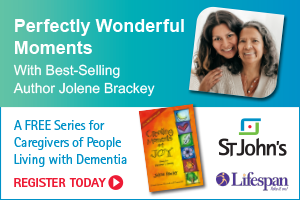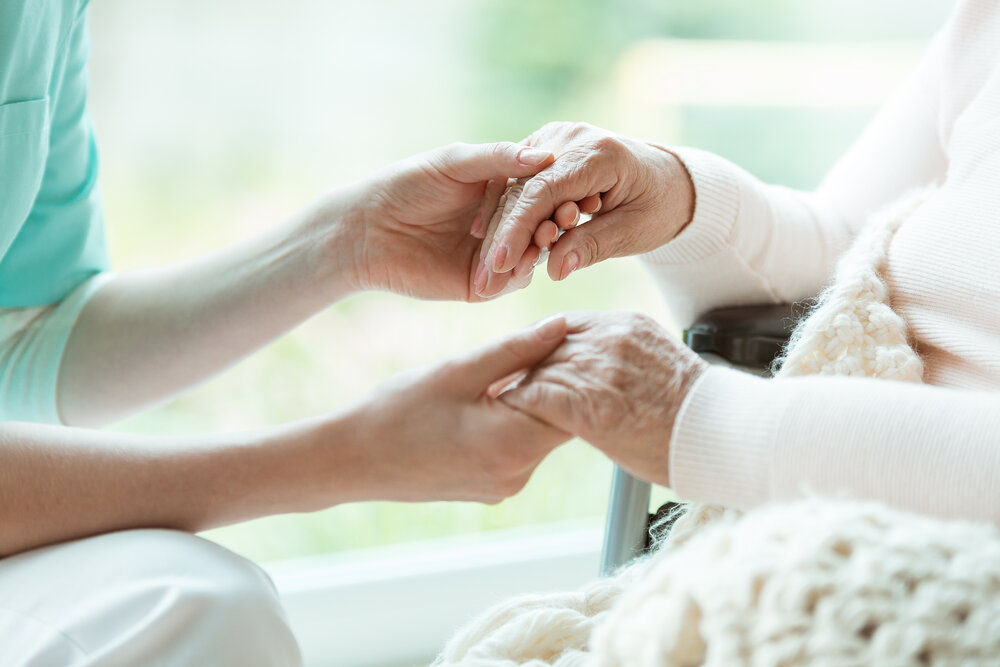A recent McKinsey Health Institute global survey found that spiritual health matters to many people, regardless of age, country, or religious beliefs. According to their research, spiritual health encompasses having meaning in one’s life, a sense of connection to something larger than oneself, and a sense of purpose. How does this change for a person living with dementia? Can a caregiver help a loved one practice faith and spirituality even as dementia progresses?
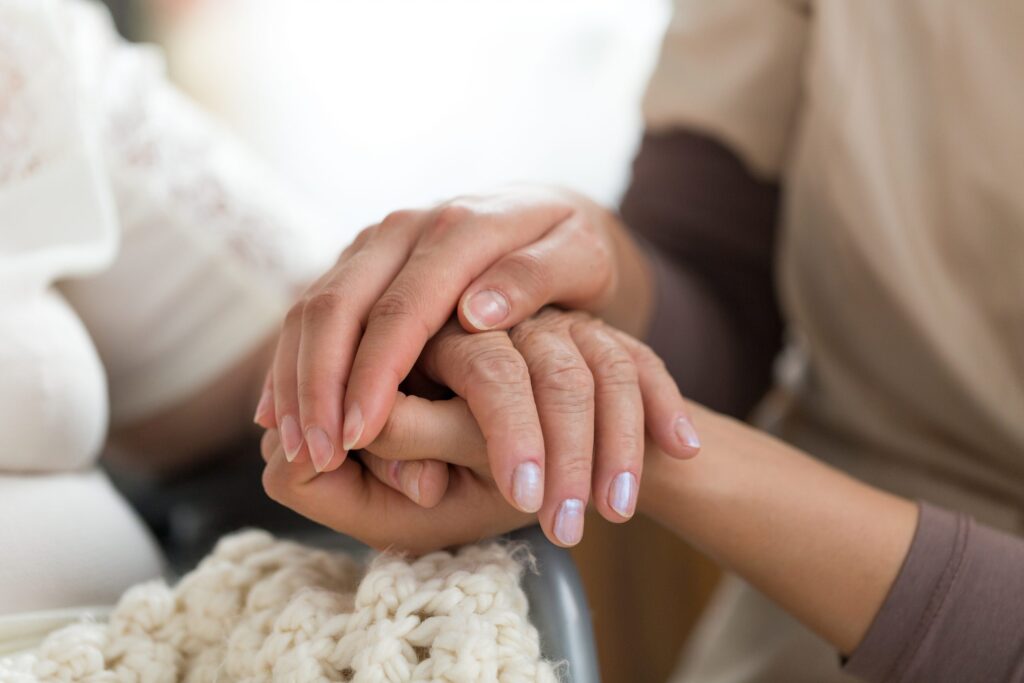
In observance of Spiritual and Pastoral Care Week, which is celebrated the last full week of October (October 20-26, 2024), some of our St. John’s experts share how spirituality can be incorporated into caregiving, as well as provide suggestions on some recommended faith-based activities that can enrich the experience for both caregivers and individuals with dementia.
“While it might look different depending on the day or moment in which you are connecting with someone, people with dementia are human beings with an innate capacity for joy, love, finding and making meaning in their life or moments, and connecting with something or someone outside of themselves,” says St. John’s Spiritual Life Partner Benjamin Loos.
Understanding Spirituality in Caregiving
Spirituality encompasses a variety of beliefs and practices, often involving a sense of connection, purpose, and belonging. Incorporating spirituality into caregiving can promote emotional resilience, provide comfort, and create meaningful moments.
According to St. John’s Spiritual Life Care Partner Sarah Culp, no matter the level of dementia progression a person is experiencing, he/she can still engage in some form of spiritual practice. “In many situations, hymns, prayers, and rituals bring a profound sense of joy, peace, and connection,” she says. “Even someone who is not able to communicate as they once did can join in the Our Father, begin singing ‘Amazing Grace,’ or clap along to ‘He’s Got the Whole World in His Hands.'”
“People living with dementia have a profound lived experience of the phrase ‘all we have is the present moment.’ The past may seem foggy and the future is uncertain, but God is working and moving and providing grace each day, each hour, and each moment,” says St. John’s Spiritual Life Partner Alisa Unell.
Spirituality Can Improve Dementia Health Outcomes
Some studies have also pointed to a link between spirituality and improved health outcomes. An exhaustive review that compared spirituality and religiousness to other health interventions found that people with a strong spiritual life had an 18% reduction in mortality. Giancarlo Lucchetti, lead author of one such study, calculates that the life-lengthening benefits of spirituality can be compared to eating a high amount of fruits and vegetables or taking blood pressure medication.
The health benefits of practicing spirituality not only help the people living with dementia, but also their caregivers. “I think practicing faith helps when it is in a safe space with others who understand the stresses and strains of caregiving,” says Culp.
In her role at St. St. John’s, Culp says that she is not only there for the residents, but also the caregivers. According to Culp, some caregivers may make excuses , hide, or are even embarrassed about having a loved one with dementia. “I think we have a responsibility as a community to hold people, to be conduits of ‘memories,’ and help them let go of any shame they may carry,” she says about the important work she and her team does.
Below are some of the health benefits of spirituality:
- Improved Emotional Well-Being: Studies show that spiritual practices can reduce feelings of anxiety, depression, and loneliness among caregivers and those with dementia. For instance, a study published in the Journal of Gerontological Nursing found that caregivers who engaged in spiritual practices reported lower levels of stress and higher overall life satisfaction. “Even if it is, at times, “just” a sip of cold water, these small acts and moments are so much more and I want to lift up and value caring for the person in a holistic way that sees someone’s day filled with holy, sacred moments,” says Loos, who notes that caregivers may have to be creative and attentive to their loved ones in a particular moment in order to care for them spiritually.
- Enhanced Cognitive Function: Spirituality can foster a sense of purpose and meaning, which has been linked to improved cognitive function. Individuals with dementia who engage in spiritual or religious activities may experience slower cognitive decline according to the Journal of Alzheimer’s Disease.
- Better Quality of Life: Many articles have been written about the link between spiritual well-being and better quality of life for individuals with dementia. Those who reported higher spiritual well-being experienced fewer behavioral symptoms and improved overall functioning.
- Strengthened Social Connections: Spiritual activities often involve community and support networks, which can enhance social engagement for both caregivers and individuals with dementia. Increased social interaction is associated with lower rates of depression and improved emotional health.
- Pain and Symptom Management: Incorporating spirituality into caregiving can help manage pain and other symptoms. Spiritual practices can enhance coping mechanisms and provide a sense of peace, which is crucial for individuals facing chronic illnesses like dementia.
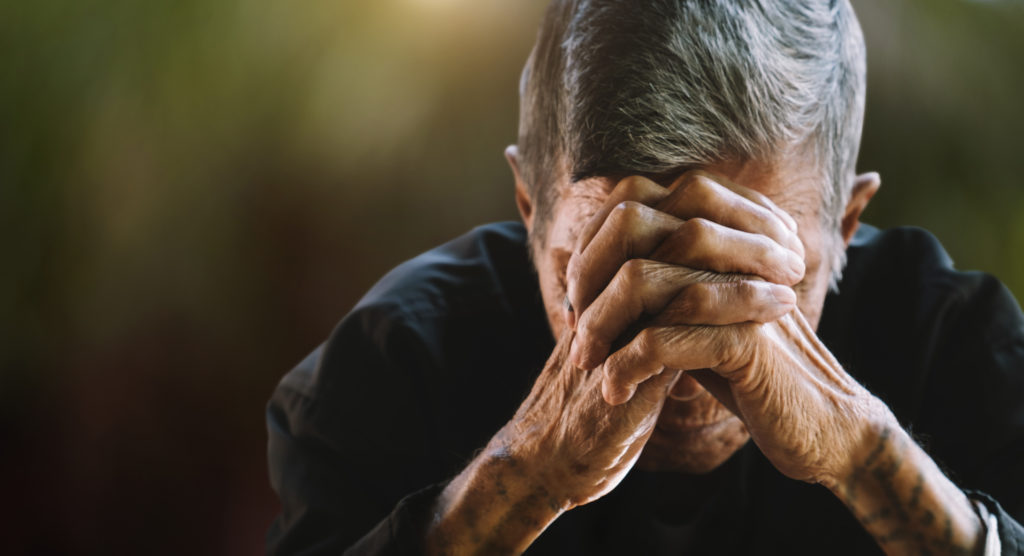
How to Incorporate Spirituality in Caregiving
Spiritual and religious activities for people with Alzheimer’s Disease or other forms of dementia can profoundly influence their sense of well-being. As a caregiver, you can use spiritual activities to stay connected to your loved ones living with dementia. Even when persons living with dementia lose mental abilities, they retain their spiritual sensitivity. Spirituality transcends the person and promotes a connection to one’s self, others, and the environment.
“Dementia opens us up to a whole new spirituality—one that allows us to just be—be held and loved by God just as we are—it doesn’t matter who we are—what we have done—how intelligent we are—how successful we have been—only that we are—right now,” says Culp, who admits this is what is very challenging for many people. “We are so driven by independence, standards of success, privilege, etc. It is hard to simply love, to be in community, to seek goodness in and for others.”
Below are some spiritual activities that you and your loved one can practice together. Get creative in identifying ways to engage with your loved one. Spiritual activities can speak to the emotions and senses of those living with dementia without the pressure to “remember.”
1. Mindfulness and Meditation
- Activity: Spend a few minutes each day practicing mindfulness or meditation, using guided sessions or simply focusing on breathing.
- Benefits: Reduces stress, promotes relaxation, and enhances emotional well-being
2. Nature Walks
- Activity: Take leisurely walks in nature, encouraging observation of the beauty around you.
- Benefits: Connection to nature evokes feelings of peace and serenity, enhancing spiritual experiences.
3. Storytelling and Reminiscing
- Activity: Share stories about family history and traditions, prompting memories with photographs or keepsakes.
- Benefits: Strengthens emotional bonds and preserves the individual’s sense of identity
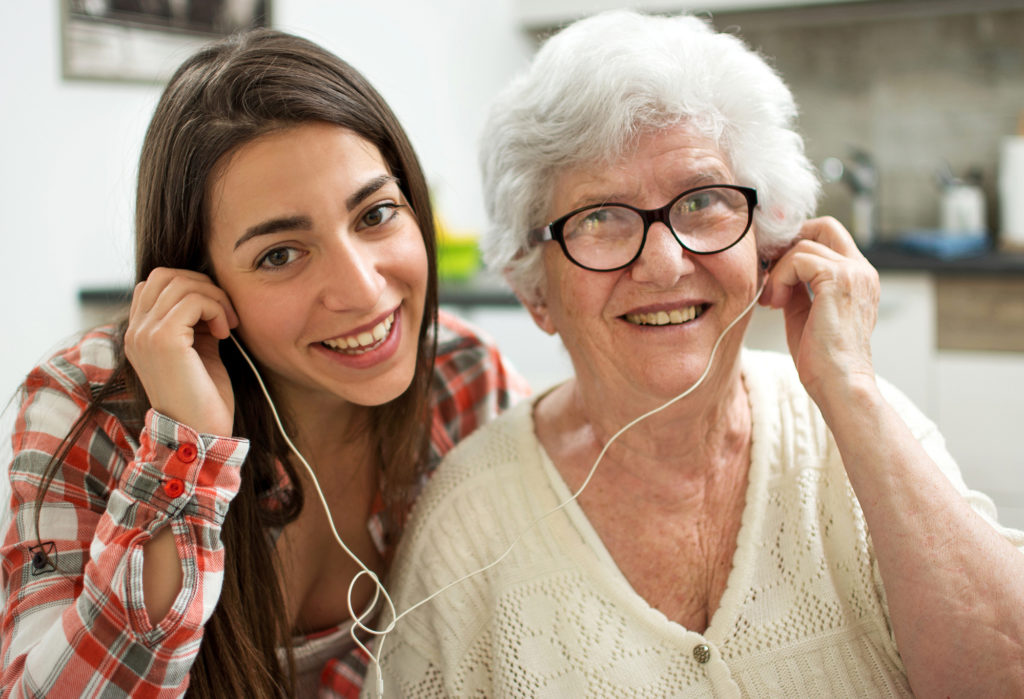
4. Music and Singing
“I would say there is great power in music to help people connect with their faith and spirituality, regardless of condition,” says Loos.
- Activity: Play soothing music or sing familiar songs together, including hymns or favorite tunes.
- Benefits: Music evokes emotions, stimulates memories, and enhances spiritual connection.
5. Art and Creative Expression
- Activity: Engage in simple art activities like painting or crafting, focusing on self-expression.
- Benefits: Fosters creativity and allows for personal expression, while providing joy and accomplishment
6. Prayer or Affirmations
“Familiar songs, prayers, scripture passages, chanting, or even body motions (like prayer gestures or postures) can be helpful ways to help someone engage with their religious/spiritual practice,” says Unell.
- Activity: Incorporate prayer or recite affirmations together to create a sense of comfort.
- Benefits: Offers hope and peace, especially during difficult moments
Culp recommends starting with the Lord’s Prayer, familiar hymns and songs, the Beatitudes, Prodigal Son, or parables. “I might use a common scripture, like the 23rd Psalm, start off the verse and have them join me to finish,” she says.
7. Volunteer Together
- Activity: Engage in community service, such as visiting nursing homes or participating in local clean-ups.
- Benefits: Fosters a sense of purpose and connection to the community
8. Celebrate Rituals and Traditions
- Activity: Observe family traditions or create new rituals to reinforce belonging and continuity.
- Benefits: Enhances emotional security and connection
9. Gentle Yoga or Stretching
- Activity: Participate in gentle yoga or stretching exercises together to promote relaxation.
- Benefits: Improves physical well-being and encourages mindfulness
10. Creating a Gratitude Journal
- Activity: Start a gratitude journal together, noting things you are thankful for each day.
- Benefits: Promotes positive thinking and appreciation for life’s small moments
Incorporating spirituality into dementia caregiving can be a transformative experience, which fosters deeper connections and enhances emotional well-being. The positive health outcomes associated with spiritual practices make it a valuable addition to caregiving routines. By engaging in these activities, caregivers can create a supportive and enriching environment that honors the spiritual needs of both themselves and their loved ones. Tailoring these activities to fit the preferences and abilities of the person you are caring for is essential. Embracing spirituality not only enriches the lives of those with dementia but also nurtures the caregiver’s own spirit.





